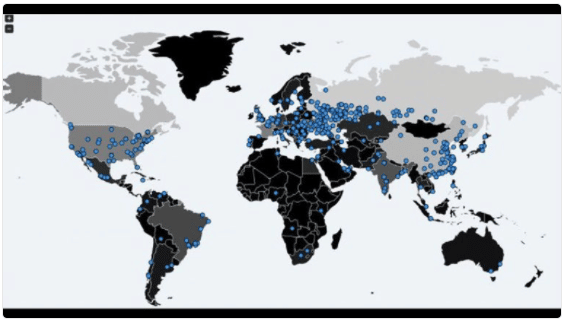3 min read
What is a black hat hacker and their impact on healthcare?
Anne-Marie Sullivan December 28, 2022

As technology advances and becomes a larger part of our everyday lives, it is essential to understand the potential threats that come with it. One of those threats is the presence of hackers – black hat hackers, to be precise – hackers who use their skills and knowledge to access and manipulate systems for personal gain illegally.
What exactly is a black hat hacker?
In the world of cybersecurity, there are three main categories of hackers:
- White hat
- Grey hat
- Black hat
White hat hackers are ethical hackers who use their skills to help secure systems and identify vulnerabilities. Grey hat hackers fall somewhere in between, using their skills for good and nefarious purposes.
On the other hand, the black hat hackers are the ones you need to avoid.
Are black hat hackers cybercriminals?
A black hat hacker is a cybercriminal who uses their skills and expertise to gain unauthorized access to systems, steal sensitive information, and cause damage to networks and websites. These individuals often operate with malicious intent, and their actions can have severe consequences for both individuals and organizations.
See more: Why is healthcare a juicy target for healthcare?
Black hat hackers threat to healthcare
In the healthcare industry, black hat hackers pose a particular threat due to the sensitive and personal nature of the information stored in healthcare systems.
Medical records, insurance information, and other personal data can be valuable commodities on the black market. And hackers target healthcare organizations to gain access to this information.
The consequences of a black hat hack are severe, including financial losses, damage to a company's reputation, and legal repercussions. Therefore, Healthcare organizations must protect themselves and their patients from these attacks.
Protect yourself from black hat hackers with these steps:
- Implement strong passwords
- Regularly update software and security protocols
- Train employees to identify and prevent potential threats
- Use best-of-class cybersecurity software tools
In 2021, the healthcare industry saw a significant increase in cyber attacks, with more than 65% of healthcare organizations reporting a data breach. Additionally, the financial consequences of these attacks are significant, with the average cost of a data breach in the healthcare industry reaching $380 per record.
Besides the financial impact, data breaches can damage an organization's reputation and patient trust.
See more: HHS reminder: remain vigilant against cyberthreats
What are the types of cyberattacks?
As we've established, black hat hackers use their skills and knowledge to gain unauthorized access to systems, steal sensitive information, and cause damage or disruption. But what are some specific tactics they may use to achieve these goals?
Let's look at some of the most common attacks and risks associated with black hat hacking in the healthcare industry.
Malware: Malware is software designed to harm or exploit a computer system. It can take many forms, including viruses, worms, and Trojan horses. Once installed on a computer, malware can steal sensitive information, delete or corrupt files, and even take control of the system.
Phishing Links: Black hat hackers often use phishing scams to trick individuals into divulging sensitive information or clicking on a link that installs malware. These scams can be emails, texts, or social media messages that appear to come from a legitimate source. They may ask for login credentials and financial information or urge the recipient to click on a link or download an attachment.
DoS Attack: Denial of service (DoS) attack is a tactic that involves overwhelming a website or system with traffic, rendering it inaccessible to legitimate users. DoS attacks can be challenging to prevent and cause significant disruption for the targeted organization.
See more: White House warns against possible Russian cyberattacks
Healthcare needs to be aware of black hat threats
As a healthcare professional or facility, you must be aware of the potential risks of black hat hacking and take steps to protect yourself and your patients. The risks associated with black hat hacking in the healthcare industry are significant. Staying vigilant and being proactive in your cyber security efforts is essential to protect yourself and your organization.
This includes meeting the requirements set forth by HIPAA (Health Insurance Portability and Accountability Act) and PHI (Protected Health Information).
So how can you ensure you meet these requirements and protect your patients' information?
Paubox is your solution.
Paubox is a secure email provider that meets HIPAA and PHI requirements. It lets you send and receive secure emails without portals or logins. The solution is patented and has military-grade encryption.
Using a secure email solution like Paubox gives you peace of mind knowing you're taking steps to protect your patients' sensitive information.
Today, being vigilant in your cyber security efforts is more critical than ever. And Paubox is a valuable tool in helping you do just that.
See more: HIPAA compliant email: The definitive guide
Subscribe to Paubox Weekly
Every Friday we bring you the most important news from Paubox. Our aim is to make you smarter, faster.



